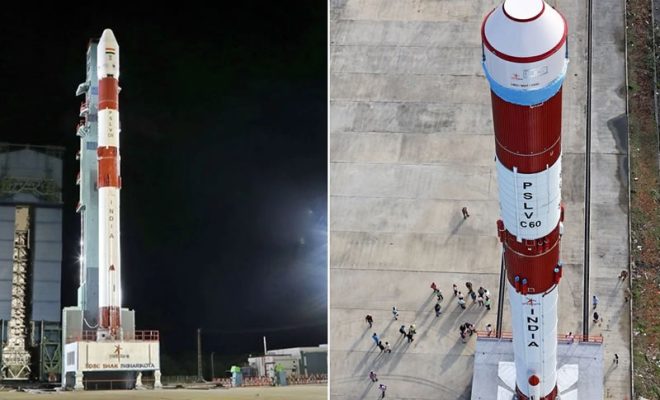India’s First Satellite Docking Test Faces Another Delay by ISRO

For the second time, the Indian Space Research Organization (ISRO) postponed the satellite space docking experiment on Wednesday, citing high drift between the mission satellites.
According to ISRO, the experiment was postponed because the “process requires further validation through ground simulations based on an abort scenario identified today.”
Initially planned for Tuesday, the mission is called the Space Docking Experiment (SpaDeX).
According to the space agency, SpaDEX is a crucial project that aims to create and showcase the technologies required for spacecraft rendezvous, docking and undocking using two tiny satellites.
The mission consists of two satellites in a 470 km circular orbit, 20 km apart. Because of their zero relative velocity, a chaser and target satellite appear to be stationary even though they are moving at 28,800 kmph, or ten times the speed of a bullet.
Prior to attempting the docking practice, ISRO chairman S Somanth stated: “They would only do it if all sensors have been completely calibrated and checked to satisfaction. Before giving the spacecraft instructions to do the docking on its own, all algorithms and scenarios are also evaluated on the ground.
In order to verify the success of the docking, power will be switched between the two satellites. Once the satellites dock, they will be managed as a single spacecraft. Once the satellites have docked and undocked, the operation will be deemed successful, and the satellites will become autonomous.



